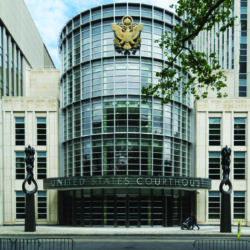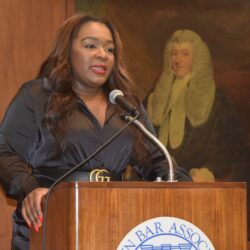
High Pollen Count? Brooklyn Allergists Give Advice
BROOKLYN – It was possibly the warmest March on record. Now, high pollen counts, day after day, are pervading the East Coast. Some cities, like Atlanta, have recorded their highest pollen counts ever.
And more and more people are visiting doctors’ offices complaining about sneezing, watery eyes, sinus pain and other allergic symptoms.
Two Brooklyn allergists, Dr. Yalamanchi Rao, affiliated with New York Methodist Hospital, and Dr. David Erstein, fellow in allergy at SUNY Downstate Long Island College Hospital, recently talked to the Eagle about the rise in allergic suffering.
“In the winter,” said Dr. Rao, who also has an office on Bay Ridge Parkway, “there is no pollen in the air. If people suffer from allergies, they are indoor allergies — cat dander, indoor mold. Once spring comes, the trees bloom and you have pollen.” Dr. Erstein added that tree pollen is the first to hit — flowers come later, and ragweed still later.
“This year, in the middle of March, we started having temperatures of 60, 70 degrees. It was a very early spring – it’s never been this early before,” said Rao. “Plants are very sensitive to temperature and wind velocity. The trees started giving out pollen much earlier. You have a cascade of trees pollinating, one after another — elder, ash, birch, oak, and, particularly in Brooklyn, sycamore trees.”
Typical allergic symptoms include itchy and watery eyes, sneezing and nasal congestion. After people’s noses are stuffed up, said Rao, they start breathing through the mouth. “Pollen goes into the breathing tubes, and you get deep bronchial coughs.”
Interestingly, both doctors said that the city’s drive to plant as many street trees as possible has had the unintended consequence of making people’s allergies worse. “We have this movement toward planting 1 million trees, and I wonder how this will affect New Yorkers in the future,” said Erstein.
Erstein added that at LICH, “We get a mixture of people, both those who are diagnosed [with allergies] and those who aren’t. Many patients say, 'My symptoms are usually so moderate, but this season has really taken me by surprise.’”
Rao advised allergy sufferers to keep their doors and windows closed, avoid outdoor activities in the early morning (when pollen is strongest) and keep an air purifier in the bedroom. Erstein added that patients who know they have allergies should come before the season starts, so their physician can get them started by starting a round of preventive medicines.
Both doctors recommended steroid nasal sprays such as Flonase and Nasonex, and Erstein said patients might also look into the idea of allergy injections.
“One of the things I like to tell patients is that there’s no reason for you to suffer,” said Erstein.
Leave a Comment
Leave a Comment


